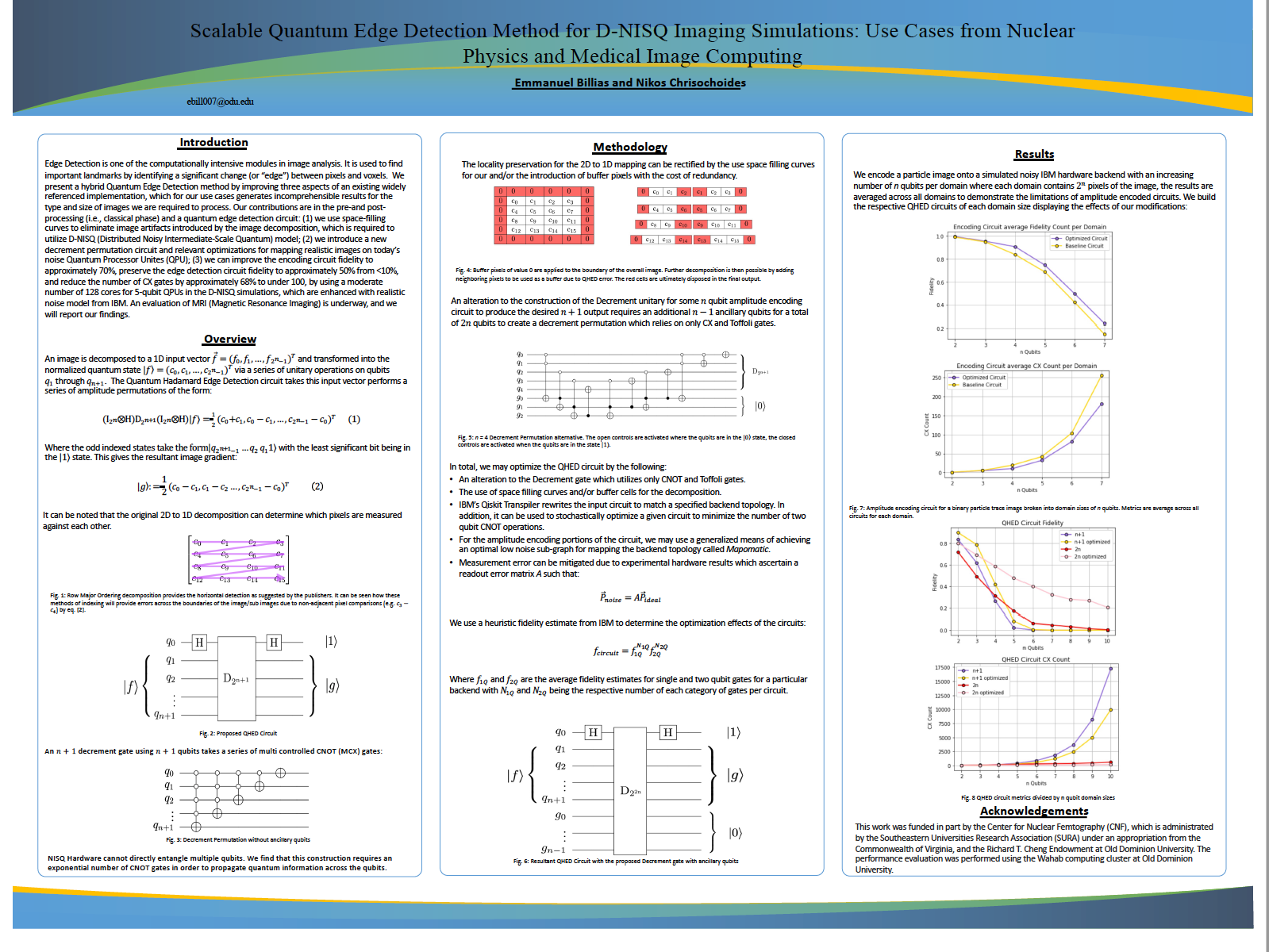File:CRTC QHED.png

Edge Detection is one of the computationally intensive modules in image analysis. It is used to find important landmarks by identifying a significant change (or “edge”) between pixels and voxels. We present a hybrid Quantum Edge Detection method by improving three aspects of an existing widely referenced implementation, which for our use cases generates incomprehensible results for the type and size of images we are required to process. Our contributions are in the pre-and post-processing (i.e., classical phase) and a quantum edge detection circuit: (1) we use space-filling curves to eliminate image artifacts introduced by the image decomposition, which is required to utilize D-NISQ (Distributed Noisy Intermediate-Scale Quantum) model; (2) we introduce a new decrement permutation circuit and relevant optimizations for mapping realistic images on today’s noise Quantum Processor Unites (QPU); (3) we can improve the encoding circuit fidelity to approximately 70%, reduce the edge detection circuit depth by approximately 11%, and reduce the number of CX gates by approximately 68% to under 100, by using a moderate number of 128 cores for 5-qubit QPUs in the D-NISQ simulations, which are enhanced with realistic noise model from IBM. An evaluation of MRI (Magnetic Resonance Imaging) is underway, and we will report our findings.
File history
Click on a date/time to view the file as it appeared at that time.
| Date/Time | Thumbnail | Dimensions | User | Comment | |
|---|---|---|---|---|---|
| current | 06:46, 10 February 2023 |  | 1,599 × 1,200 (530 KB) | Nikos (talk | contribs) | Edge Detection is one of the computationally intensive modules in image analysis. It is used to find important landmarks by identifying a significant change (or “edge”) between pixels and voxels. We present a hybrid Quantum Edge Detection method b... |
- You cannot overwrite this file.
File usage
The following page links to this file: